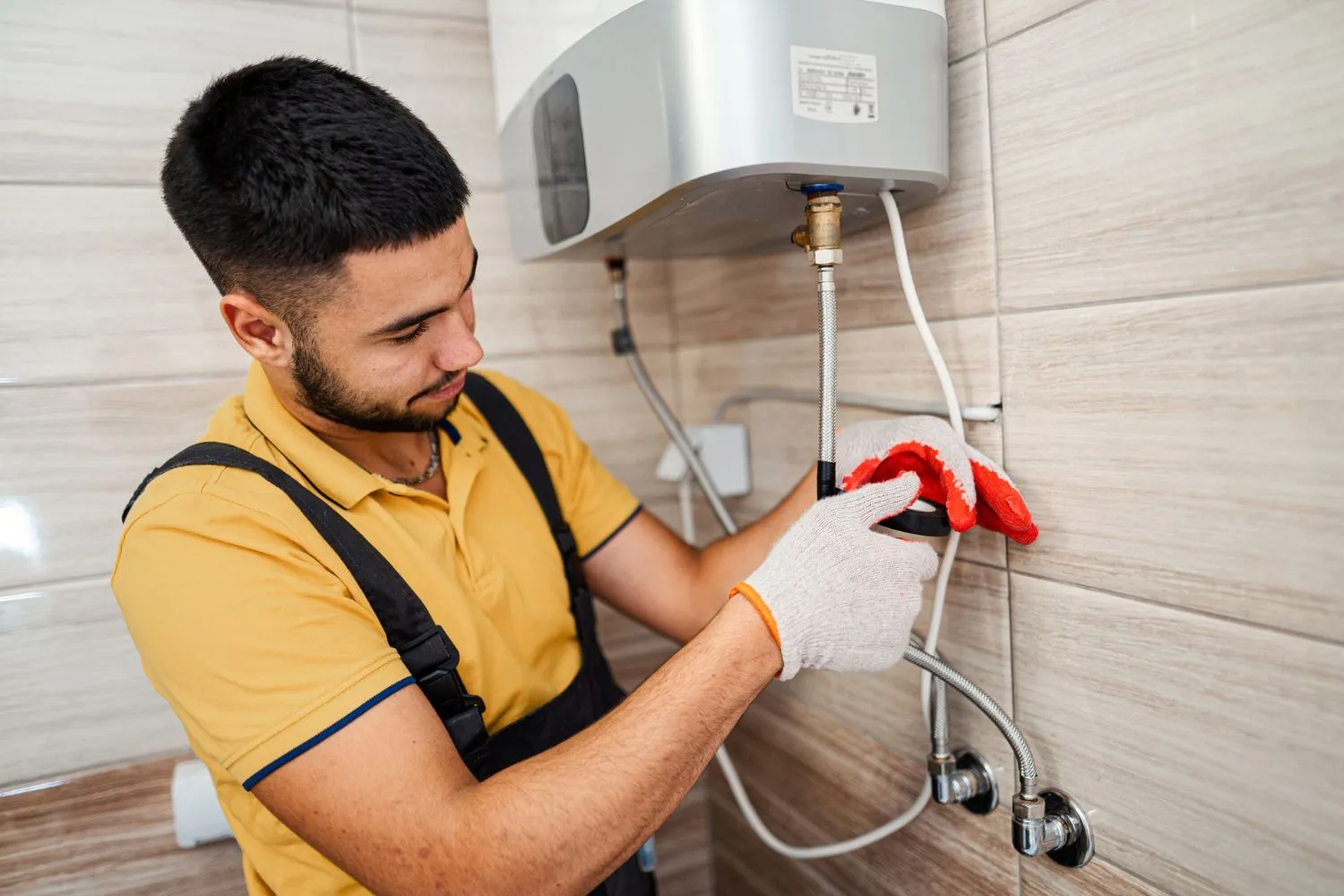Addressing Standard Water Heater Difficulties
Addressing Standard Water Heater Difficulties
Blog Article
This great article below involving Water Heaters Problems is truly informative. Read it for yourself and decide what you think of it.

Imagine beginning your day without your routine hot shower. That currently sets a poor tone for the remainder of your day.
Every house requires a trustworthy water heater, but just a few know exactly how to manage one. One easy method to maintain your water heater in top form is to check for faults consistently and repair them as quickly as they appear.
Remember to shut off your hot water heater before sniffing around for mistakes. These are the hot water heater mistakes you are most likely to come across.
Water too hot or also cold
Every water heater has a thermostat that identifies how hot the water obtains. If the water coming into your residence is also warm despite setting a convenient maximum temperature, your thermostat might be defective.
On the other hand, also cold water may be due to a failed thermostat, a broken circuit, or improper gas flow. For instance, if you utilize a gas hot water heater with a broken pilot burner, you would certainly get cold water, even if the thermostat is in best condition. For electric heaters, a blown fuse may be the wrongdoer.
Insufficient hot water
Water heaters come in several sizes, relying on your hot water needs. If you run out of hot water prior to everybody has had a bathroom, your hot water heater is as well tiny for your family size. You must think about mounting a larger water heater tank or selecting a tankless water heater, which takes up much less space and is much more long lasting.
Odd sounds
There are at the very least five kinds of sounds you can learn through a hot water heater, however the most usual interpretation is that it's time for the hot water heater to retire.
Firstly, you ought to know with the regular seems a water heater makes. An electric heating unit may seem various from a gas-powered one.
Popping or banging sounds generally mean there is a slab of sediment in your tanks, as well as it's time to clean it out. On the other hand, whistling or hissing sounds may merely be your shutoffs letting some stress off.
Water leaks
Leakages could come from pipelines, water links, shutoffs, or in the worst-case circumstance, the container itself. In time, water will certainly corrode the container, as well as discover its escape. If this takes place, you need to change your hot water heater immediately.
However, prior to your adjustment your entire container, be sure that all pipes remain in location which each valve functions flawlessly. If you still require assistance recognizing a leak, call your plumber.
Rust-colored water
Rust-colored water indicates among your water heater parts is worn away. Maybe the anode pole, or the container itself. Your plumber will have the ability to determine which it is.
Lukewarm water
No matter how high you set the thermostat, you will not obtain any kind of hot water out of a heating unit well past its prime. A water heater's performance might decrease with time.
You will certainly additionally get warm water if your pipelines have a cross connection. This indicates that when you activate a faucet, warm water from the heater streams in together with regular, cold water. A cross connection is simple to spot. If your warm water faucets still follow closing the water heater shutoffs, you have a cross connection.
Discoloured Water
Rust is a significant source of dirty or discoloured water. Corrosion within the water container or a failing anode rod could trigger this discolouration. The anode pole shields the tank from rusting on the within and also should be inspected yearly. Without a pole or an appropriately working anode pole, the hot water promptly wears away inside the tank. Call a professional hot water heater specialist to determine if replacing the anode pole will certainly repair the issue; if not, change your hot water heater.
Conclusion
Ideally, your water heater can last ten years before you require a change. However, after the 10-year mark, you may experience any of these faults extra frequently. At this moment, you must add a new water heater to your budget.
How To Troubleshoot 3 Common Water Heater Problems in Twin Cities
The Water Heater Is Leaking
A leaky cold water inlet valve A loose pipe fitting A leaky temperature and pressure relief valve A corroded anode rod A cracked tank Turn Off Your Water Heater:
Shut off your gas water heater by turning the gas valve on the unit to the “OFF” position. Shut off your electric water by switching its power off at your electrical panel. Look for a two-pole breaker labeled “water heater” and turn it to the “OFF” position. Move the ball valve connected to the water heater to be perpendicular to the piping at a 90° angle. Look for the Leak:
Depending on whether the water is coming from the tank's top or bottom, you’ll want to look for the leak in different locations.
If the leak comes from the top of the tank, carefully look for water escaping from the cold water inlet valve or loose pipe fittings. Rusted hot and cold water valves can have loose connections with the tank, with water leaking out of them.
https://mspplumbingheatingair.com/blog/how-to-troubleshoot-3-common-water-heater-problems
I ran across that blog entry on Common Problems with Your Home Water Heater while browsing the web. In case you enjoyed our post please remember to pass it around. Thank-you for taking the time to read it.
Protect your property; contact now. Report this page